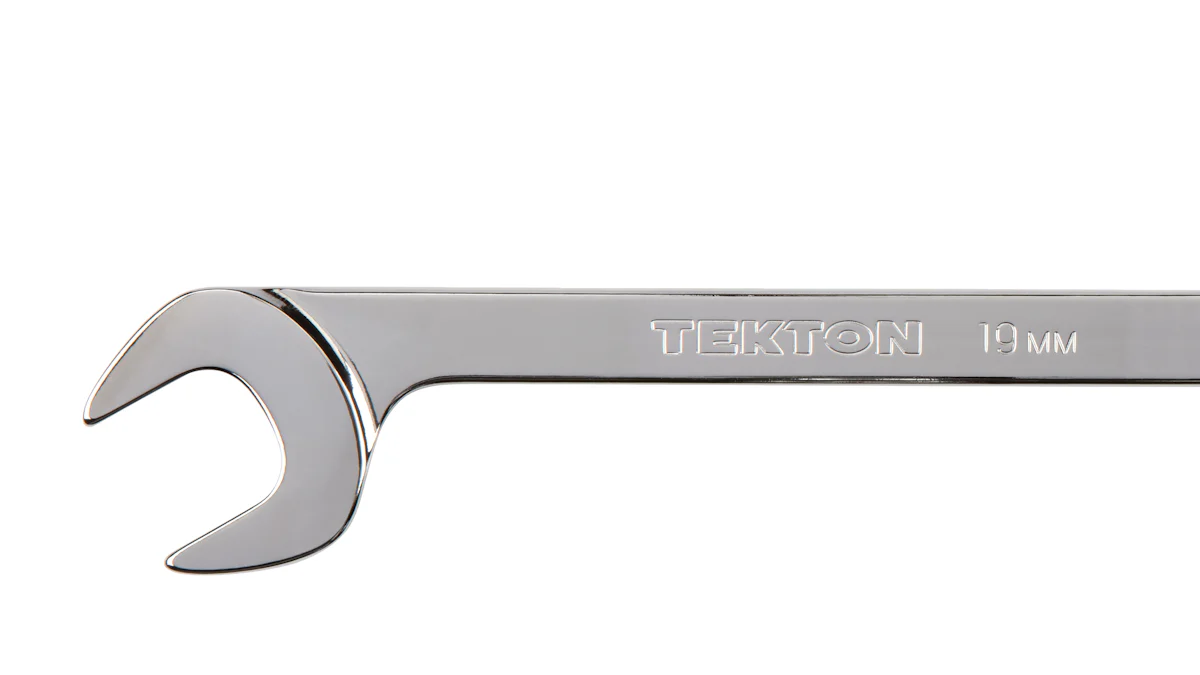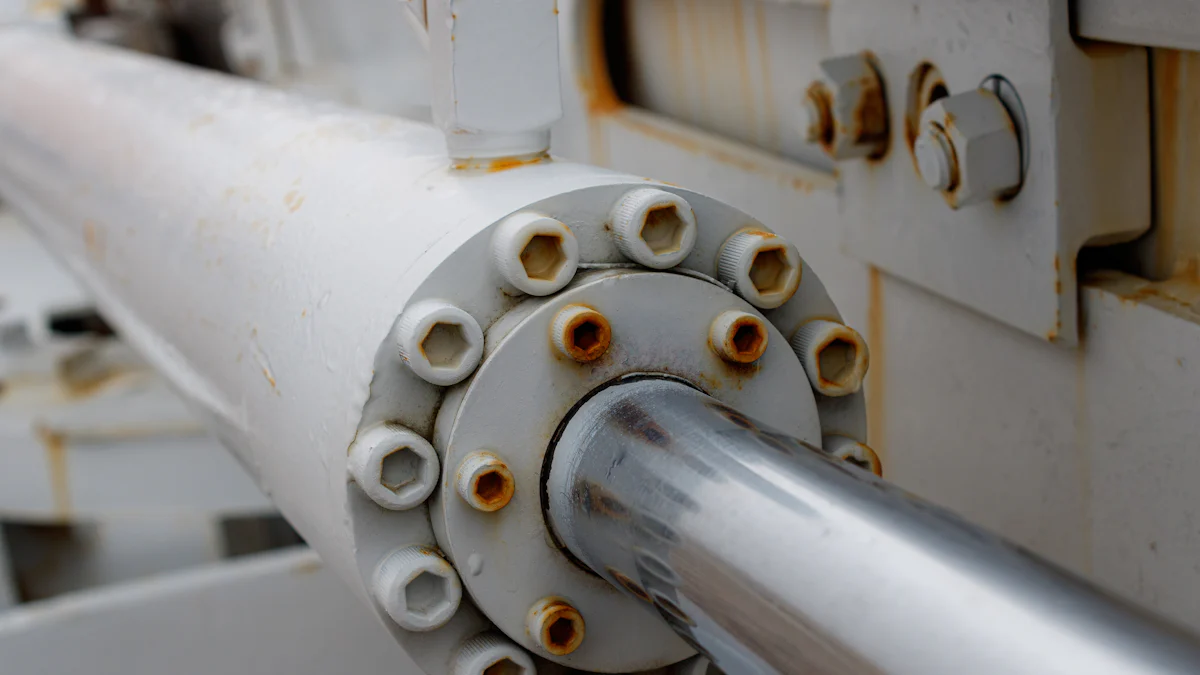
Torque wrenches play a crucial role in various industries, including automotive, aerospace, engineering, and construction. Selecting the correct tool ensures precision and safety in every task. An angle torque wrench combines torque with angle tightening methods to provide more control and reduce uncertainty. This specialized tool offers enhanced accuracy, making it indispensable for professionals and DIY enthusiasts alike.
Understanding the Angle Torque Wrench

What is an Angle Torque Wrench?
Definition and Basic Function
An angle torque wrench combines traditional torque measurement with angle measurement. This tool ensures precise tightening by measuring both the torque applied and the angle turned. The combination of these measurements provides enhanced control over the fastening process.
Common Uses and Applications
Professionals use angle torque wrenches in various fields, including automotive, aerospace, and construction. These tools are essential for applications requiring high precision, such as tightening cylinder head bolts in engines. The dual measurement system helps achieve consistent and reliable results, reducing the risk of over-tightening or under-tightening fasteners.
Types of Angle Torque Wrenches
Manual vs. Digital
Manual angle torque wrenches rely on mechanical components to measure torque and angle. These tools often feature a dial or scale for reading measurements. Manual wrenches are durable and do not require batteries, making them suitable for environments where electronic devices might fail.
Digital angle torque wrenches offer advanced features like digital displays, preset values, and data storage. These tools provide higher accuracy and ease of use. Digital wrenches can alert users with a buzzer or light when the desired torque and angle are reached. The electronic components simplify the tightening process and reduce human error.
Fixed vs. Adjustable
Fixed angle torque wrenches have a predetermined torque and angle setting. These tools are ideal for repetitive tasks where the same specifications are required. Fixed wrenches ensure consistency and speed in operations.
Adjustable angle torque wrenches allow users to set different torque and angle values. These versatile tools accommodate various applications and fastener specifications. Adjustable wrenches are beneficial for professionals who work on diverse projects with varying requirements.
Key Factors to Consider
Torque Range
Importance of Torque Range
The torque range defines the force an angle torque wrench can apply. Different applications require varying torque levels. For example, automotive tasks might need a different range compared to aerospace applications. Using a wrench that fits the specific torque range ensures precision and safety. A mismatch can lead to over-tightening or under-tightening, which compromises the integrity of the fastener.
How to Determine the Right Range for Your Needs
To determine the right torque range, first identify the requirements of your specific application. Check the manufacturer’s specifications for the fasteners you will be working with. Always aim to use a wrench where the desired torque falls within the middle of its calibrated range. This practice enhances accuracy. Sometimes, multiple wrenches with different ranges may be necessary to cover all your needs.
Accuracy and Calibration
Why Accuracy Matters
Accuracy in an angle torque wrench is crucial for ensuring that fasteners are tightened to the correct specifications. Inaccurate torque can lead to mechanical failures or safety hazards. High-precision tasks, such as those in aerospace or automotive industries, demand exact torque values. An accurate wrench minimizes the risk of errors, ensuring the reliability and longevity of the assembly.
How to Check Calibration
Regular calibration checks are essential for maintaining the accuracy of an angle torque wrench. To check calibration, use a certified torque tester. Compare the readings from the wrench to the tester’s values. If discrepancies exist, recalibrate the wrench according to the manufacturer’s guidelines. Routine calibration ensures that the tool remains reliable and precise over time.
Build Quality and Durability
Materials and Construction
The build quality of an angle torque wrench significantly impacts its performance and lifespan. High-quality materials, such as hardened steel or aluminum, offer durability and resistance to wear and tear. Robust construction ensures that the wrench can withstand frequent use in demanding environments. Opt for wrenches with ergonomic designs to enhance user comfort and reduce fatigue during prolonged use.
Brand Reputation and Reviews
Brand reputation serves as a reliable indicator of quality and performance. Established brands often provide superior products backed by extensive research and development. Reading customer reviews can offer insights into the real-world performance of an angle torque wrench. Look for consistent positive feedback regarding accuracy, durability, and ease of use. Trustworthy brands also offer better customer support and warranty services.
Practical Tips for Choosing the Right Tool

Assessing Your Specific Needs
Type of Work
Identify the type of work that requires an angle torque wrench. Automotive tasks often demand different specifications compared to aerospace or construction projects. For example, tightening cylinder head bolts in engines requires high precision. Evaluate the specific applications to determine the appropriate tool features.
Frequency of Use
Consider how often the tool will be used. Frequent use necessitates a durable and reliable angle torque wrench. Professional mechanics and technicians benefit from investing in high-quality tools. Occasional users might opt for more budget-friendly options without compromising essential features.
Budget Considerations
Balancing Cost and Quality
Striking a balance between cost and quality is crucial. High-end models offer advanced features like digital displays and data storage. These features enhance accuracy and ease of use. However, they come at a higher price. Assess the necessary features for your tasks and choose a model that offers the best value.
Long-term Investment
View the purchase of an angle torque wrench as a long-term investment. Quality tools provide consistent performance and durability. Investing in a reputable brand ensures reliability and reduces the need for frequent replacements. Customer testimonials often highlight the longevity and satisfaction with high-quality tools.
“Awesome job with your torque wrenches! I love using them and they are my go-to,” says a satisfied user.
Where to Buy
Online vs. In-store
Purchasing an angle torque wrench online offers convenience and a wider selection. Online retailers often provide detailed product descriptions and customer reviews. However, buying in-store allows for hands-on inspection and immediate purchase. Evaluate the pros and cons of each option based on your preferences.
Warranty and Customer Support
Consider the warranty and customer support offered by the manufacturer. A comprehensive warranty provides peace of mind. Reliable customer support assists with any issues or questions. Established brands typically offer better warranties and support services. Research these aspects before making a purchase decision.
Selecting the right angle torque wrench involves careful consideration of various factors. Key points include understanding the types of wrenches, assessing torque range, ensuring accuracy and calibration, and evaluating build quality. Professionals and DIY enthusiasts should prioritize their specific needs and budget constraints.
Investing in a high-quality tool enhances precision and safety. Proper technique, such as using a slow, steady motion, ensures accurate readings. Regular calibration maintains reliability. Choosing the right tool leads to better results and long-term satisfaction.
See Also
Scooter Upgrades: High-Quality Parts for Optimal Performance
Discovering a Range of Men’s and Women’s Sock Styles
Mastering Winter Comfort with Soft and Cozy Towel Socks
